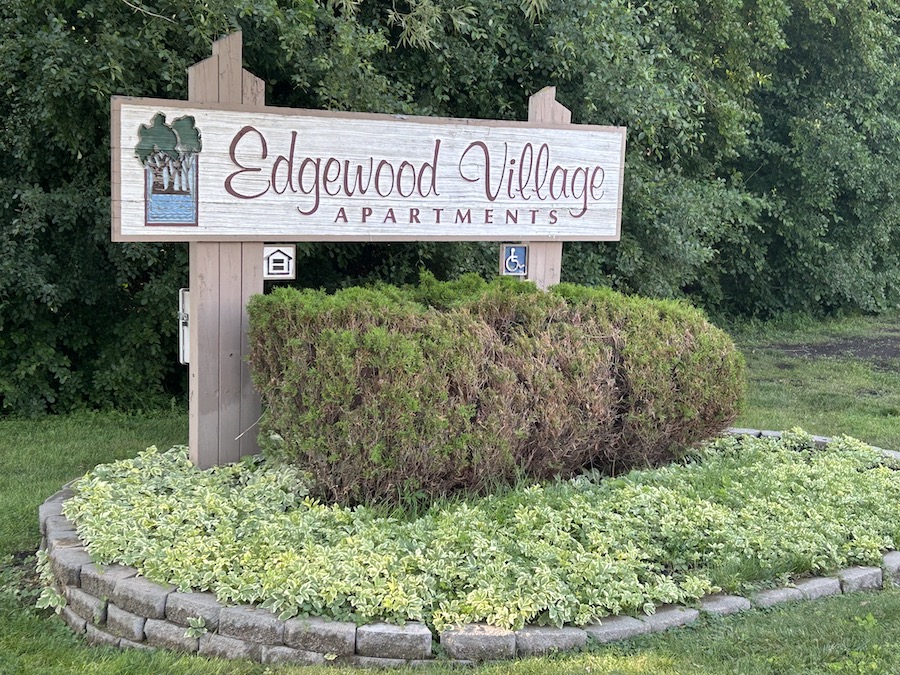Future of Free School Meals Uncertain for East Lansing Public Schools
Michigan public schools had to make their yearly budgets before the school year started without knowing how much funding they would get from the state, due to a partisan stalemate in the state legislature that caused elected officials to miss the July 1 deadline to pass a state budget.
And as school has begun, now districts are contemplating staff cuts and having to roll back special education resources, East Lansing Public Schools Superintendent Dori Leyko told Michigan lawmakers Wednesday, as she urged elected officials in Lansing to finalize a School Aid Budget and avoid government shutdown.
“If a budget is not passed by September 30, school districts across Michigan will face even deeper uncertainty,” Leyko said. “Some districts have even had to borrow money to ensure that they can make payroll if the government shuts down and the October state aid payment is not made. That wastes taxpayer dollars on interest, money that should have been invested directly into our classrooms. This could and should have been avoided.”

For two years, students in public schools have had free school lunch and breakfast regardless of family income funded by the state. With money set to expire at the end of the month, districts are having to make decisions about the future of those meals.
East Lansing Public Schools plan to continue providing free school meals until September 30 and will communicate with families if the program will continue, pending if the legislature renews funding, the district said in an emailed notice to the school community Monday. Other resources ELPS says are at risk without state dollars coming in are the school bus operations and student programs, like athletics.
Each morning East Lansing resident Ann Siegle’s son rides his bike before classes start at East Lansing High School to have breakfast with his friends, a routine Siegle told ELi creates a sense of community amongst the students.
There are students eating breakfast with her son that may not be able to access paid school meals for a variety of reasons, Siegle said, from housing instability to parental health issues.
A lunchroom should not be a venue to spotlight students’ at-home struggles, Siegle said, recalling growing up without money for a school lunch and receiving the school-offered ‘free lunch’ that was different from the meal other students paid for.
“These are societal problems that segregate kids into ‘haves and have-nots’ that is extremely visible to the kids in our community. I mean, I grew up as one of those kids…There was a real stigma to receiving that,” Siegle said.
There’s a ton of students in East Lansing who could end up not having a meal at school, Siegle said. As president of the East Lansing High School Community Council, she hopes parents can come together to advocate for the needs of students.
So many kids at the high school have participated in free school meals that a part of a security renovation underway includes additional cafeteria space, Siegle pointed out.
Every single one of the approximately 150 kids living in low-income housing in Edgewood Village in East Lansing will be impacted if free school meals end, Caroline Jacobs, executive director for the affordable housing nonprofit organization told ELi.

State lawmakers in Michigan, Republicans and Democrats, spent much of the summer hosting press conferences, pointing fingers, as budget negotiations stalled and Jacobs said she’s tired of school children and teachers being held “hostage” by the legislature’s “ineptitude.”
“When the state legislature fails in their duties, it’s teachers, it’s kids, it’s parents, it’s vulnerable people who are just trying to get by who end up bearing the brunt of that inability,” Jacobs said. “No child, in my opinion, should ever have to have an empty tummy when they’re trying to learn.”
Affordable housing, access to education and food security act as bridges out of poverty, Jacobs said, as Edgewood focuses its efforts on supporting families in those arenas. But with rental prices spiking, inflation at the grocery store and a looming state government shutdown threatening school resources, pathways for residents to create better opportunities for their kids are being closed off.
Free school meals nationwide was a COVID-19 pandemic-era federal policy which resulted in increased participation in school meals and financial relief for many households grappling with job losses or other economic hardships. When the federal universal school meals program was phased out as the pandemic subsided, some states, including Michigan, implemented state-funded universal free school meals.
For five years ELPS has had no such thing as ‘lunch debt’ thanks to universal free meals, ELPS Board of Education President Chris Martin told ELi, and he’s not interested in it returning.
Before the pandemic, local businesses and nonprofit organizations would donate thousands of dollars to eradicate standing school lunch debt, Martin said, and it’s disheartening to think that schools might have to go back to leaning on the goodwill of the community to pay for school meals.
“I don’t see a scenario where we deny a student lunch or breakfast in the district because they can’t pay for it,” Martin said. “No student should be made to feel less than or bad because their family doesn’t have the resources to afford a meal.”

